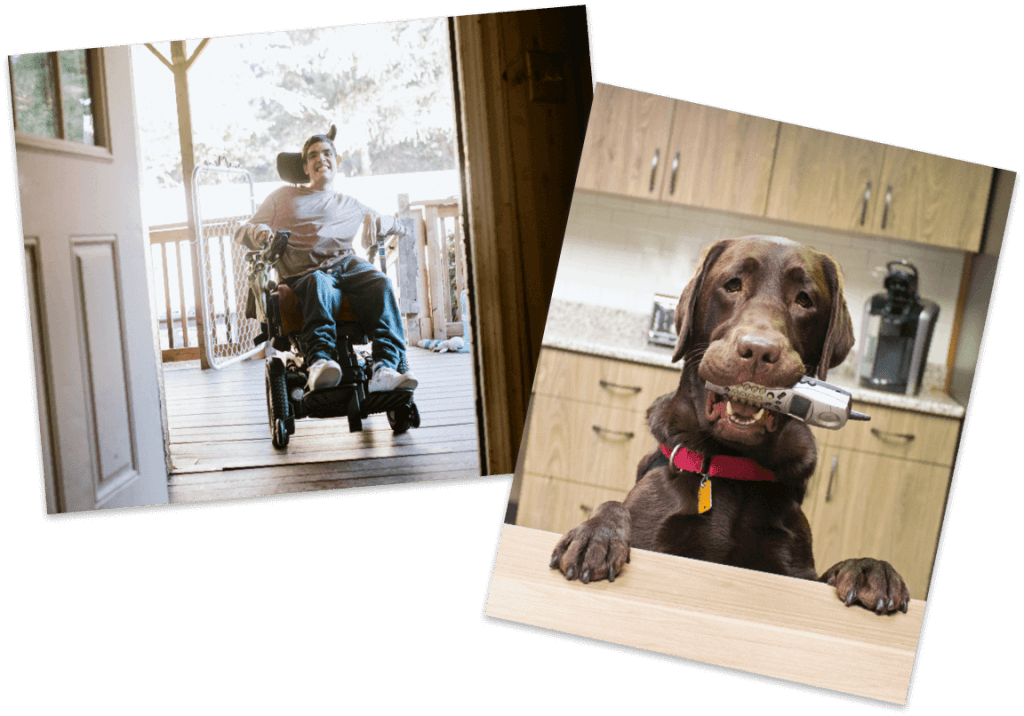If you’re a job-seeker with a disability, you know how difficult it can be to obtain gainful employment. From finding a position that matches your skillset to performing the daily functions of your job, there’s a lot to consider. If you’re not sure where to get started, you’ve come to the right place. This blog on jobs for people with disabilities is designed to help you understand your rights and responsibilities as you seek employment.
How Does the Americans with Disabilities Act Define “Disability?”
The Americans with Disabilities Act (ADA) defines a disability as “a physical or mental impairment that substantially limits one or more ‘major life activities.’” These “major life activities” include (but are not limited to):
- Walking
- Talking
- Seeing
- Hearing
- Learning
- Breathing
- Lifting
- Sleeping
It’s important to understand that the ADA does not designate specific conditions as “disabilities.” Instead, it looks at how you’re actually affected by your impairment on a daily basis.
Does the ADA Protect Job Applicants with Disabilities?
While the Americans with Disabilities Act doesn’t require employers to hire job seekers with disabilities, it does offer certain protections. If you’re applying for a job at a company with at least 15 employees and have a qualified disability, you’re covered by the ADA.
Ultimately, the goal is to prevent disability discrimination on the part of employers during the hiring process. Disability discrimination occurs when employers treat applicants with disabilities unfairly, even when they’re equally-qualified as able-bodied applicants. You’re considered “qualified” if you meet the job requirements and can perform the role with or without reasonable accommodations.
Explore All of Your Employment Options
If you’re not sure how to find a job when you have a disability, start by taking advantage of every option and resource. Check with local disability advocacy groups to pinpoint employers that frequently hire people with disabilities. You should also look into vocational rehabilitation agencies and job placement services designed specifically for people with disabilities.
Work From Home
Working from home is a great option if you don’t have access to reliable transportation or have a restrictive schedule. Common work from home positions include customer service and technical support representatives.
Self-Employment
Self-employment is another good way for people with disabilities to maintain gainful employment. If you’d like to start your own business but aren’t sure where to begin, there are online entrepreneurship resources designed for people with disabilities.
Volunteering
If you don’t have much prior work experience, consider looking into volunteering or internships. These roles help you make new contacts while also building confidence and job skills, like writing, teaching, coaching, sales, and more.

Ensure You Understand the Requirements of the Job
Found a job you’re interested in? Start by making sure you understand — and meet — the specific requirements of the position. If you have a physical disability, consider how it might impact your ability to perform common work-related activities, like sitting, standing, or lifting.
If you have a mental disability, determine whether you can respond and adapt to your working conditions. Will you be able to productively interact with your coworkers while maintaining your concentration? Are you able to understand and remember instructions in a timely manner? Identifying potential impediments in advance helps you find jobs for people with disabilities that you’re well suited for.

UDS Can Help You Live A Fuller Life With Our Comprehensive Services:
Planning & Support – Our dedicated planning & support teams help manage the care and services you need.
Personal Care & Independence – We’ve helped people with disabilities live more independently in their own homes since 1965.
Enrichment & Life Skills – Our variety of programs is dedicated to building skills for living well with a disability.
Decide If and When to Disclose Your Disability
Choosing when to disclose your disability (if at all) is one of the most important decisions you’ll make during the job search. According to federal law, you are not required to disclose your disability to potential employers unless it impacts the essential job functions. However, employers are allowed to ask you the following questions:
- Can you perform the job’s essential functions with or without reasonable accommodations?
- If the answer is yes, how will you perform these essential functions?
The choice of whether or not to disclose your disability to potential employers is yours. However, many experts feel disclosing before your job offer demonstrates strength and confidence. It also allows you to reinforce your ability to perform the essential functions of the job.
Always Request Reasonable Accommodations
The Americans with Disabilities Act also requires qualified employers to provide reasonable accommodations for employees with disabilities. According to the ADA, a reasonable accommodation is “any change to the application or hiring process, to the job, to the way the job is done, or the work environment that allows a person with a disability who is qualified for the job to perform the essential functions of that job and enjoy equal employment opportunities.” The ADA considers accommodations to be “reasonable” if they “do not create an undue hardship or a direct threat.”
You must disclose your disability to a prospective (or current) employer in order to receive accommodations. Reasonable accommodations associated with jobs for people with disabilities include:
- Assistance with interviews or training
- Modification of position responsibilities or work environment
- Opportunities for remote work and modified schedules
- Altering when and how tasks are performed
- Acquisition of modified devices or assistive technologies (e.g. speech recognition software)

Consider Pursuing Vocational Rehabilitation
Funded by the U.S. Department of Education, vocational rehabilitation (VR) offers services that help people with disabilities obtain and maintain jobs. To qualify, you must have a disability that presents a significant barrier to employment or need VR services to get or maintain a job.
Vocational rehabilitation is completely personalized and includes everything from career counseling for individuals with disabilities to job retention services. If you receive Supplemental Security Income (SSI) or Social Security Disability Insurance (SSDI), you’re automatically eligible for vocational rehabilitation. To learn more or get started with VR, contact your state’s vocational rehabilitation office.
Be Confident and Advocate for Yourself
Perhaps the most important tool in your arsenal when job searching is to be confident and advocate for yourself. Demonstrate a thorough understanding of the requirements of the job, and emphasize how you’re uniquely qualified to fulfill the role. Stress how your strengths and experiences make you an ideal candidate and why hiring you will benefit the employer.
It’s a fact of life that employers hold (often subconscious) prejudices against candidates with disabilities. Be open and direct when fielding questions about how your disability might impact your ability to perform tasks. You can anticipate employer concerns by preparing examples of how you’ve overcome the challenges of your disability in past work environments.
Check Out These Websites for Applicants with Disabilities
Wondering how to find a job when you have a disability? Be sure to take advantage of the wide range of online resources available for job-seekers with disabilities, including:
- AbilityJOBS
- AbilityLinks
- AbilityOne
- American Job Centers
- CareerOneStop
- Disabled Person
- Employer Assistance & Resource Network (EARN)
- Federal Jobs
- Getting Hired
- Independent Living Centers
- Job Accommodation Network (JAN)
- Job Corps
- NTI@Home
- Recruit Disability
- Think Beyond the Label
- Ticket to Work
- USA Jobs Resource Center
- Veteran Readiness & Employment
- What Can You Do?
- Workforce Recruitment Program (WRP)
UDS’ Employment Services are designed to help people with disabilities find gainful employment in Pennsylvania. Contact us today to learn more about jobs for people with disabilities. Learn More About Our Employment Services